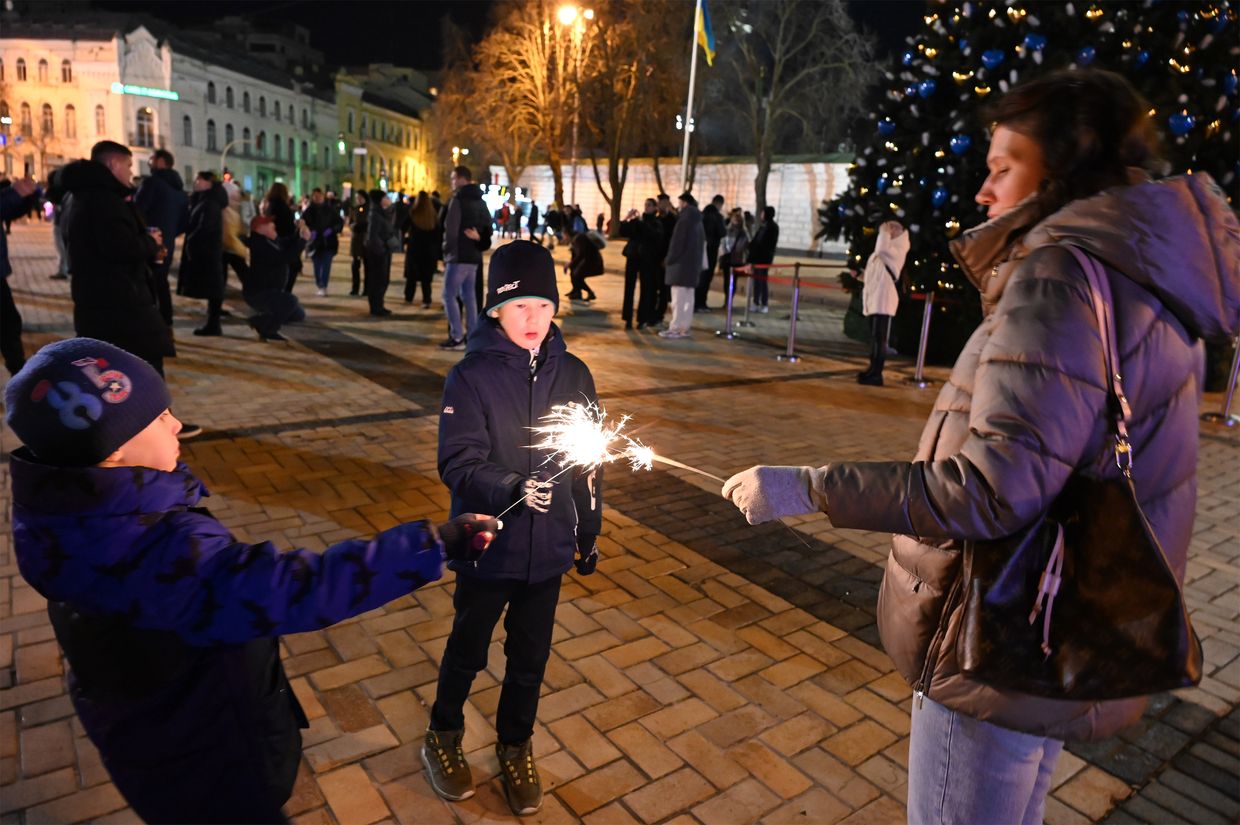Ukrainian optimism about war clashes with European skepticism in new poll

A new public opinion survey has revealed a widening gulf between Ukrainian hopes of a battlefield victory against Russia and European resignation that the war will only end with a negotiated settlement.
Conducted by the European Council on Foreign Relations (ECFR), the poll found that while support for Ukraine and a willingness to provide arms to Kyiv remain high, the differing views could have profound political effects in the coming months and years.
"The findings are superficially reassuring," the report reads, adding, "Support for the war has stayed steady in the European countries surveyed – and morale is strong in Ukraine."
"Yet just below the surface, the poll identifies a profound chasm between European and Ukrainian opinion about how the war will end – and about the purpose of Europe’s support.
"In short, Ukrainians want weapons in order to win, while most Europeans send weapons hoping this will help lead to an acceptable eventual settlement."
Despite Russia only making small grinding gains in eastern Ukraine, and a thwarted Kremlin offensive in Kharkiv Oblast, any kind of negotiated settlement is still some way off.
Russian President Vladimir Putin on June 14 said Moscow would only cease fire and enter peace talks if Ukraine withdraws from the four Ukrainian regions claimed – but not fully controlled – by the Kremlin.
The demands also included the recognition of Crimea and Sevastopol as "subjects of the Russian Federation."
The terms were immediately rejected by Kyiv which insists a full withdrawal of Russian troops from all Ukrainian territory is necessary for peace negotiations to begin.
Most recently, on July 2 President Volodymyr Zelensky dismissed a proposal from Hungarian Prime Minister Viktor Orban to consider a ceasefire in order to "speed up peace talks."
The ECFR poll, titled "The meaning of sovereignty: Ukrainian and European views of Russia’s war on Ukraine," surveyed respondents in 15 countries – Bulgaria, Czech Republic, Estonia, France, Germany, Great Britain, Greece, Italy, Poland, Portugal, the Netherlands, Spain, Sweden, Switzerland, and Ukraine.
Across Europe, publics are skeptical about Ukraine's ability to win the war, and in every country surveyed except for Estonia, a majority believe it will only end with a negotiated settlement.

Even when asked to imagine a scenario in which the supply of weapons to Ukraine dramatically increases, a settlement is still seen as the most likely outcome in 11 out of the 15 countries surveyed.
Despite this, across Europe, there is strong support for increasing Western weapons supplies to Kyiv, particularly in Sweden, Poland, Great Britain, the Netherlands, and Portugal.
But in Bulgaria, Greece, and Italy, a majority of respondents think it is a "bad idea."
A majority of Ukrainians continue to believe they can win the war against Russia, with just 1% saying it will end with a victory for the Kremlin.
Ukrainians have high confidence in the reliability of their Western allies, with the UK coming out on top of those who think it has been "very" or "mostly" reliable.

While there is broad support for sending weapons among Europeans, the idea of sending Western troops to Ukraine is opposed by a majority in every country surveyed, even those most hawkish about the war.

The wide-ranging survey also found:
- A majority of Ukrainians (64%) believe joining NATO and joining the EU are equally important.
- 47% of Ukrainians are concerned the U.S. could negotiate a peace deal with Russia without involving Kyiv.
- 71% of Ukrainians think Ukraine should either "definitely" or "probably" not give up territory in exchange for NATO membership.
"Our new polling suggests that one of the key challenges for Western leaders will be reconciling the conflicting positions between Europeans and Ukrainians on how the war will end," co-author and founding director of the ECFR, Mark Leonard, said.
"While both groups recognize the need for continued military provision, to help Ukraine push back at Russian aggression, there is a profound gulf around what constitutes a victory – and what the purpose of Europe’s support actually is.
"While Europeans predominantly see a negotiated settlement as the most likely outcome, Ukrainians are not yet ready to countenance territorial trade-offs for NATO accession, nor engage with the idea of ‘Finlandization,’ in which they would keep their territory but forgo their EU and NATO ambitions.”
The full report can be read here.











